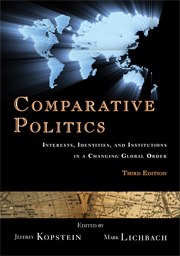1 - What Is Comparative Politics?
Summary
Introduction
Imagine that you could design the political order (for example, democracy in the United States, Communist Party dominance in China) for a country of your choosing. Where would you start? Who would get to rule? What rules for political life would you choose? Could you make rules that would be fair to everyone? If not, whom would these rules favor and whom would they disadvantage? Would they be rules that even those at the bottom of the social order, the poorest and least powerful people, would agree to? What would be the rules for changing the rules? These are difficult questions because to answer them in a meaningful way requires an understanding of why and how different countries of the world are governed differently. With so many choices to make, it is easy to see why the job of designing a constitution would be such a difficult one.
It could, however, be made easier. One might start by evaluating the existing possibilities as exemplified by the various forms of government in the states of the world. The state is an organization that possesses sovereignty over a territory and its people. Yet, within our world of states, no two are ruled in exactly the same way. Why should this be the case? Why are societies run, and political orders designed, in so many different ways? What consequences do these differences hold for a people's well-being?
- Type
- Chapter
- Information
- Comparative PoliticsInterests, Identities, and Institutions in a Changing Global Order, pp. 1 - 15Publisher: Cambridge University PressPrint publication year: 2008
- 4
- Cited by



